- Home
- Harlan Coben
the Woods (2007) Page 20
the Woods (2007) Read online
Page 20
He released me. I don't know if my blow did it or it was just a decision on his part. But he let go. He stood. I stood too. The bartender was watching us now.
"You need help, Mr. Perez?" he asked.
I had the badge out again. "You reporting all your tips to the IRS?"
He backed off. Everyone lies. Everyone has stuff they keep buried. Everyone breaks laws and keeps secrets.
Perez and I stared at each other. Then Perez said to me, "I'm going to make this simple for you."
I waited.
"If you go after my children, I'll go after yours."
I felt my blood tick. "What the hell does that mean?"
"It means," he said, "I don't care what sort of badge you carry You don't threaten to go after a mans children." He walked out the door. I thought about his words. I didn't like them. Then I picked up my cell phone and called Muse. "Dig up everything you can on the Perezes," I said.
Chapter 25
Greta finally returned my call. I was on my way home, still in the car, and I struggled to find that damn "hands-free" so that the Essex County prosecutor would not be caught breaking the law.
"Where are you?" Greta asked.
I could hear the tears in her voice.
"I'm on my way home."
"Do you mind if I meet you there?"
"Of course not. I called before-"
"I was down at the courthouse."
"Did Bob make bail?"
"Yes. He's upstairs getting Madison to bed."
"Did he tell you-"
"What time will you be home?"
"Fifteen, twenty minutes tops."
"I'll see you in an hour, okay?"
Greta hung up before I could answer.
Cara was still awake when I got home. I was glad for that. I put her to bed and we played her new favorite game, called "Ghost." Ghost is basically hide-and-seek and tag combined. One person hides. When that person is found, he tries to tag the finder before the finder gets back to home base. What made our version of the game extra-silly was that we played it in her bed. This severely limited your hiding spots and chances to reach home base. Cara would duck under the covers and I would pretend I couldn't find her. Then she would close her eyes and I would put my head under the pillow. She was as good at pretending as I was. Sometimes I would hide by putting my face right in front of her eyes, so she would see me the second she opened them. We both laughed, well, like children. It was dumb and silly and Cara would outgrow it very soon and I didn't ever want her to.
By the time Greta arrived, using the key I had given her years ago, I was so lost in the bliss of my daughter that I'd almost forgotten everything ' young men who rape, young girls who vanish in the woods, serial killers who slit throats, brothers-in-law who betray your trust, grieving fathers who threaten little girls. But the jangle in the door brought it all back to me.
"I have to go," I told Cara.
"One more turn," she pleaded.
"Your aunt Greta is here. I need to talk to her, okay?"
"One more? Please?"
Children will always beg for one more. And if you give in, they will do it again and again. Once you give in, they will never stop. They will always ask for one more. So I said, "Okay, one more."
Cara smiled and hid and I found her and she tagged me and then I said I had to go and she begged for one more, but I'm nothing if not consistent so I kissed her cheek and left her begging, nearly in tears.
Greta stood at the bottom of the steps. She wasn't pale. Her eyes were dry. Her mouth was a straight line that accentuated her already too-prominent jowls.
"Isn't Bob coming?" I asked.
"He's watching Madison. And his lawyer is coming over."
"Who does he have?"
"Hester Crimstein."
I knew her. She was very good.
I came down the stairs. I usually kissed her cheek. I didn't today. I wasn't sure what to do exactly. I also didn't know what to say. Greta moved toward the den. I followed. We sat on the couch. I took her hands in mine. I looked at that face, that plain face, and, as always, saw angels. I adored Greta. I really did. My heart broke for her.
"What's going on?" I asked.
"You need to help Bob," she said. Then: "Help us."
"I will do whatever I can. You know that."
Her hands felt ice cold. She lowered her head and then looked straight at me.
"You have to say you loaned us the money," Greta said in pure monotone. "That you knew about it. That we agreed to pay you back with interest."
I just sat there.
"Paul?"
"You want me to lie?"
"You just said you would do whatever you could."
"Are you saying"-I had to stop-"Are you saying Bob took the money? That he stole from the charity?" Her voice was firm. "He borrowed the money, Paul." "You're kidding, right?" Greta took her hands away from mine. "You don't understand." "Then explain it to me."
"He'll go to jail," she said. "My husband. Madison's father. Bob will go to jail. Do you get that? It will ruin all our lives."
"Bob should have thought of that before he stole from a charity."
"He didn't steal. He borrowed. It's been tough for him at work. Did you know he lost his two biggest accounts?" "No. Why didn't he tell me?" "What was he going to say?" "So he thought the answer was to steal?" "He didn't'a" She stopped mid-denial, shook her head. "Its not that simple. We had signed the papers and committed to the pool. We made a mistake. We overextended."
"What about your family money?"
"After Jane died, my parents thought it best to keep everything in trust. I can't touch it." I shook my head. "So he stole?" "Will you stop saying that? Look." She handed me photocopied sheets. "Bob was keeping tabs on every cent he took. He was using six percent interest. He would pay it all back once he got on his feet. It was just a way of tiding us over."
I scanned through the papers, tried to see something that would help them, show me that he hadn't truly done what they said. But there was nothing. There were handwritten notes that could have been put there at any time. My heart sank.
"Did you know about this?" I asked her.
"That's not relevant."
"Like hell it isn't. Did you know?"
"No," she said. "He didn't tell me where the money came from. But listen, do you know how many hours Bob put into JaneCare? He was director. A man in that position should have had a full-time salary. Six figures at least."
"Please tell me you're not going to justify it that way."
"I will justify it any way I can. I love my husband. You know him. Bobs a good man. He borrowed the money and would have returned it before anybody noticed. This type of thing is done all the time. You know that. But because of who you are and this damn rape case, the police stumbled across it. And because of who you are, they will make an example of him. They'll destroy the man I love. And if they destroy him, they destroy me and my family. Do you get that, Paul?"
I did get it. I had seen it done before. She was right. They would put the entire family through the wringer. I tried to push past my anger. I tried to see it Greta's way, tried to accept her excuses.
"I don't know what you want me to do," I said.
"This is my life we're talking about."
I flinched when she said that.
"Save us. Please."
"By lying?"
"It was a loan. He just didn't have time to tell you."
I closed my eyes and shook my head. "He stole from a charity. He stole from your sister's charity." "Not my sister's," she said. "Yours." I let that one go. "I wish I could help, Greta." "You're turning your back on us?" "I'm not turning my back. But I can't lie for you." She just stared at me. The angel was gone. "I would do it for you.
You know that."
I said nothing.
"You've failed everyone in your life," Greta said. "You didn't look out for your sister at that camp. And in the end, when my sister was suffering the most'a" She stopped. The
room temperature dialed down ten degrees. That sleeping snake in my belly woke up and started to slither.
I met her eye. "Say it. Go ahead, say it."
"JaneCare wasn't about Jane. It was about you. It was about your guilt. My sister was dying. She was in pain. I was there, at her deathbed. And you weren't."
The unending suffering. Days turned to weeks, weeks to months. I was there. I watched it all. Most of it anyway. I watched the woman I adored, my tower of strength, wither away. I watched the light dim from her eyes. I smelled death on her, on the woman who smelled of lilacs when I had made love to her outside on a rainy afternoon. And toward the end, I couldn't take it. I couldn't watch the final light go out. I cracked. The worst moment of my life. I cracked and ran and my Jane died without me. Greta was right. I had failed to stay on watch. Again. I will never get over it-and the guilt did indeed drive me to start up JaneCare.
Greta knew what I'd done, of course. As she just pointed out, she alone was there in the end. But we'd never talked about it. Not once had she thrown my greatest shame in my face. I always wanted to know if Jane asked for me in the end. If she knew that I wasn't there. But I never have. I thought about asking now, but what difference would it make? What answer would satisfy me? What answer did I deserve to hear?
Greta stood. "You won't help us?"
"I'll help. I won't lie."
"If it could save Jane, would you lie?"
I said nothing.
"If lying would have saved Jane's life-if lying would bring back your sister-would you do it?"
"That's a hell of a hypothetical."
"No, it's not. Because this is my life we're talking about. You won't lie to save it. And that's pretty typical of you, Cope. You're willing to do anything for the dead. It's the living you're not so good with."
Chapter 26
Muse had faxed me a three-page summary on Wayne Steubens. Count on Muse. She didn't send me the entire file. She had read it herself and given me the main points. Most of it I knew. I remember that when Wayne was arrested, many wondered why he decided to kill campers. Did he have a bad experience at a summer camp? One psychiatrist explained that while Steubens hadn't talked, he believed that he had been sexually molested at a summer camp during his childhood. An other psychiatrist, however, surmised that it was just the ease of the kill: Steubens had slaughtered his first four victims at Camp PLUS and got ten away with it. He associated that rush, that thrill, with summer camps and thus continued the pattern.
Wayne hadn't worked at the other camps. That would have been too obvious, of course. But circumstances had been his undoing. A top FBI profiler named Geoff Bedford had nailed him that way. Wayne had been under moderate suspicion for those first four murders. By the time the boy was slaughtered in Indiana, Bedford started to look at anyone who could have been in all those spots at the same time. The most obvious place to start was with the counselors at the camp.
Including, I knew, me.
Originally Bedford found nothing in Indiana, the site of the second murder, but there had been an ATM withdrawal in Wayne Steubens's name two towns away from the murder of the boy in Virginia. That was the big break. So Bedford did more serious digging. Wayne Steubens hadn't made any ATM withdrawals in Indiana, but there was one in Everett, Pennsylvania, and another in Columbus, Ohio, in a pattern that suggested that he had driven his car from his home in New York out that way. He had no alibi and eventually they found a small motel owner near Muncie who positively identified him. Bedford dug some more and got a warrant.
They found souvenirs buried in Steubens's yard.
There were no souvenirs from that first group of murders. But those, the theory went, were probably his first killings and he either had no time for souvenirs or didn't think to collect them. Wayne refused to talk. He claimed innocence. He said that he'd been set up.
They convicted him of the Virginia and Indiana murders. That was where the most evidence was. They didn't have enough for the camp. And there were problems with that case. Head only used a knife. How had he managed to kill four of them? How had he gotten them into the woods? How had he disposed of two of the bodies? They could all be explained-he only had time to get rid of two bodies, he chased them deep in the woods-but the case wasn't neat. With the murders in Indiana and Virginia, it was open and shut.
Lucy called at near midnight.
"How did it go with Jorge Perez?" she asked.
"You're right. They're lying. But he wouldn't talk either."
"So what's the next step?"
"I meet with Wayne Steubens."
"For real?"
"Yep."
"When?"
"Tomorrow morning."
Silence.
"Lucy?"
"Yeah."
"When he was first arrested, what did you think?"
"What do you mean?"
"Wayne was, what, twenty years old that summer?"
"Yes."
"I was a counselor in the red cabin," I said. "He was two down at the yellow. I saw him every day. We worked that basketball court for a week straight, just the two of us. And, yeah, I thought he was off. But a killer?"
"It's not like there's a tattoo or something. You work with criminals. You know that."
"I guess. You knew him too, right?"
"I did."
"What did you think?"
"I thought he was a dickhead."
I smiled in spite of myself. "Did you think he was capable of this?"
"Of what, slitting throats and burying people alive? No, Cope. I didn't think that."
"He didn't kill Gil Perez."
"But he killed those other people. You know that." 1 guess.
"And come on, you know he had to be the one who killed Margot and Doug. I mean, what other theory is there-he happened to be a counselor at a camp where murders took place and then took up killing himself?"
"Its not impossible," I said.
"Huh?"
"Maybe those murders set Wayne off somehow. Maybe he had that potential and that summer, being a counselor at a camp where throats were slit, maybe that was the catalyst."
"You really buy that?"
"Guess not, but who knows?"
"One other thing I remember about him," she said.
"What?"
"Wayne was a pathological liar. I mean, now that I have that big-time psychology degree I know the technical term for it. But even then. Do you remember that at all? He would lie about anything. Just to lie. It was his natural reaction. He'd lie about what he had for breakfast."
I thought about it. "Yeah, I do remember. Part of it was normal camp boasting. He was this rich kid and he'd try to fit in with us wrong-siders. He was a drug dealer, he said. He was in a gang. He had this girl friend from home who posed in Playboy. Everything he said was crap."
"Remember that," she said, "when you talk to him."
"I will."
Silence. The sleeping snake was gone. Now I felt other dormant feelings stir. There was still something there, with Lucy. I don't know if it was real or nostalgia or a result of all this stress, but I felt it and I didn't want to ignore it and I knew I'd have to.
"You still there?" she said.
"I am."
"This is still weird, isn't it? Us, I mean."
"Yes, it is."
"Just so you know," Lucy said, "you're not alone. I'm there too, okay?"
"Okay."
"Does that help?"
"Yes. Does it help you?"
"It does. It would suck if I was the only one feeling this way."
I smiled.
"Good night, Cope."
"Good night, Luce."
Serial killing-or at least, having a severely compromised conscience- must be pretty stress free, because Wayne Steubens had barely aged in twenty years. He had been a good-looking guy back when I knew him. He still was. He had a buzz cut now as opposed to those wavy, out-sailing-with-Mummy locks, but it looked good on him. I knew that he only got out of his cell an hour
a day, but he must have spent it in the sun because he had none of that typical prison pallor.
Wayne Steubens gave me a winning, near-perfect smile. "Are you here to invite me to a camp reunion?" "We're having it in the Rainbow Room in Manhattan. Gosh, I hope you can attend."
He howled with laughter as if I had just cracked the gem of gems. It wasn't, of course, but this interrogation was going to be a dance. He had been questioned by the best federal officers in the land. He had been probed by psychiatrists who knew every trick in The Psychopath's Hand book. Normal venues wouldn't work here. We had a past. We had even been somewhat friendly. I needed to use that.
His laughter segued into a chuckle and then the smile slipped away. "They still call you Cope?"
"Yes."
"So how are you, Cope?"
"Groovy," I said.
"Groovy," Wayne repeated. "You sound like Uncle Ira."
At camp we used to call the elders Uncle and Aunt.
"Ira was one crazy dude, wasn't he, Cope?"
"He was out there."
"That he was." Wayne looked off. I tried to focus in on his powder blue eyes, but they kept darting around. He seemed a bit manic. I wondered if he was medicated-probably-and then I wondered why I hadn't checked on that.
"So," Wayne said, "are you going to tell me why you're really here?" And then, before I could answer, he held up his palm. "Wait, no, don't tell me. Not yet."
I had expected something different. I don't know what exactly. I expected him to be more outwardly crazy or obvious. By crazy, I meant like the raving lunatics you conjure up when you think of serial killers- the piercing gaze, the scenery chewing, the intensity, the lip smacking, the hands clenching and unclenching, the rage right under the surface. But I didn't feel any of that with Wayne. By obvious, I meant the type of sociopaths we stumble across every day, the smooth guys you know are lying and capable of horrible things. I wasn't getting that vibe either.
What I got from Wayne was something far more frightening. Sit ting here and talking to him-the man who in all likelihood had murdered my sister and at least seven others-felt normal. Okay, even.

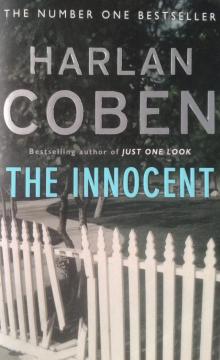 The Innocent
The Innocent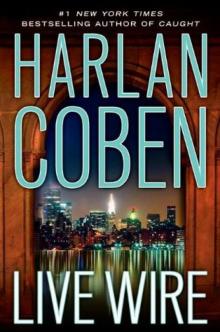 Live Wire
Live Wire Play Dead
Play Dead Drop Shot
Drop Shot Seconds Away
Seconds Away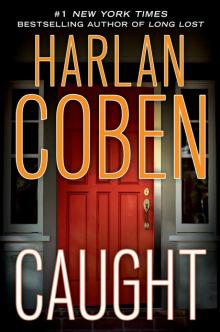 Caught
Caught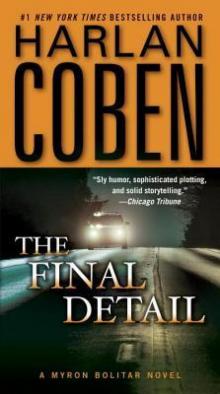 The Final Detail
The Final Detail Fade Away
Fade Away Home
Home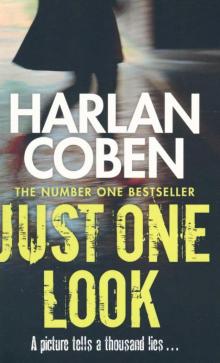 Just One Look
Just One Look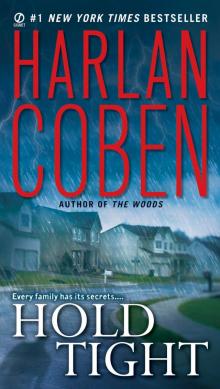 Hold Tight
Hold Tight Fool Me Once
Fool Me Once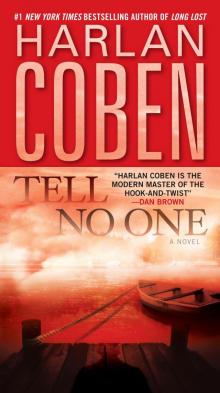 Tell No One
Tell No One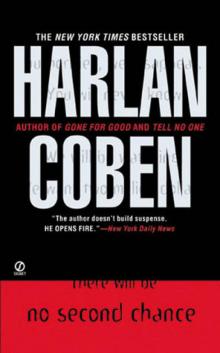 No Second Chance
No Second Chance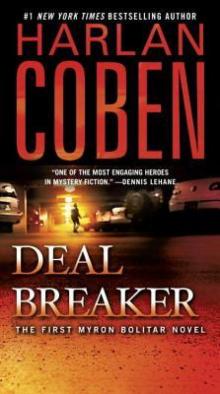 Deal Breaker
Deal Breaker Long Lost
Long Lost One False Move
One False Move The Woods
The Woods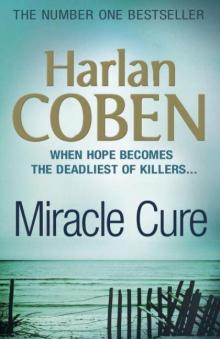 Miracle Cure
Miracle Cure Found
Found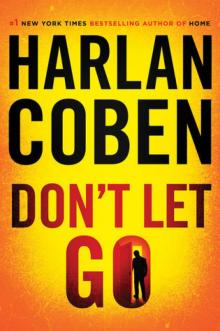 Don't Let Go
Don't Let Go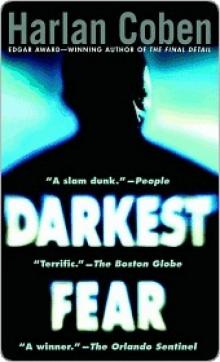 Darkest Fear
Darkest Fear The Stranger
The Stranger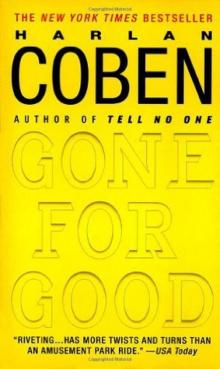 Gone for Good
Gone for Good Back Spin
Back Spin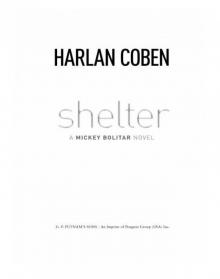 Shelter
Shelter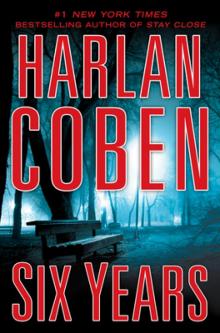 Six Years
Six Years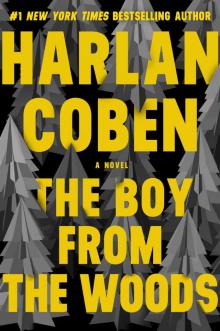 The Boy from the Woods
The Boy from the Woods Missing You
Missing You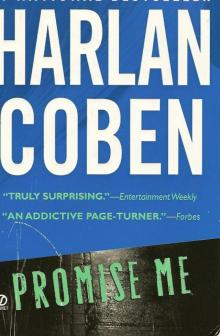 Promise Me mb-8
Promise Me mb-8 The Final Detail: A Myron Bolitar Novel
The Final Detail: A Myron Bolitar Novel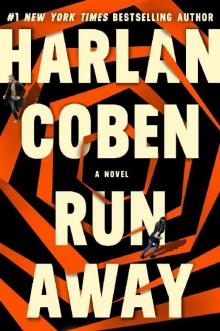 Run Away
Run Away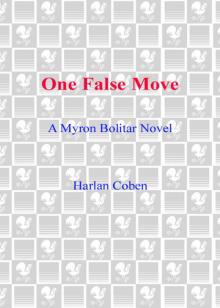 One False Move: A Myron Bolitar Novel
One False Move: A Myron Bolitar Novel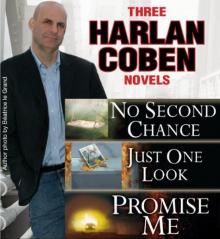 Three Harlan Coben Novels
Three Harlan Coben Novels the Woods (2007)
the Woods (2007) Tell No One (2001)
Tell No One (2001) the Innocent (2005)
the Innocent (2005)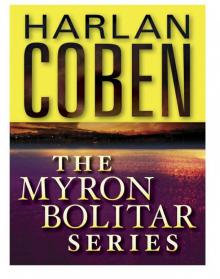 The Myron Bolitar Series 7-Book Bundle
The Myron Bolitar Series 7-Book Bundle Gone for Good (2002)
Gone for Good (2002) Caught (2010)
Caught (2010) Hold Tight (2008)
Hold Tight (2008)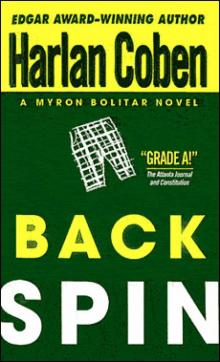 04 - Back Spin
04 - Back Spin Miracle Cure (1991)
Miracle Cure (1991) Harlan Coben 3 Novel Collection
Harlan Coben 3 Novel Collection Just One Look (2004)
Just One Look (2004)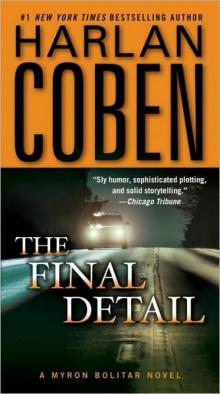 The Final Detail mb-6
The Final Detail mb-6 Play Dead (2010)
Play Dead (2010)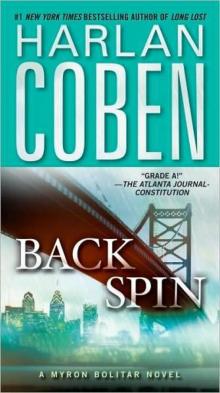 Back Spin mb-4
Back Spin mb-4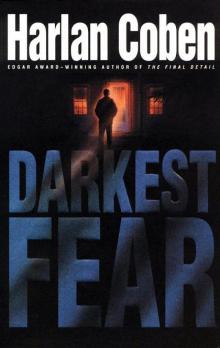 Darkest Fear mb-7
Darkest Fear mb-7